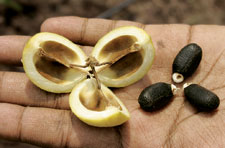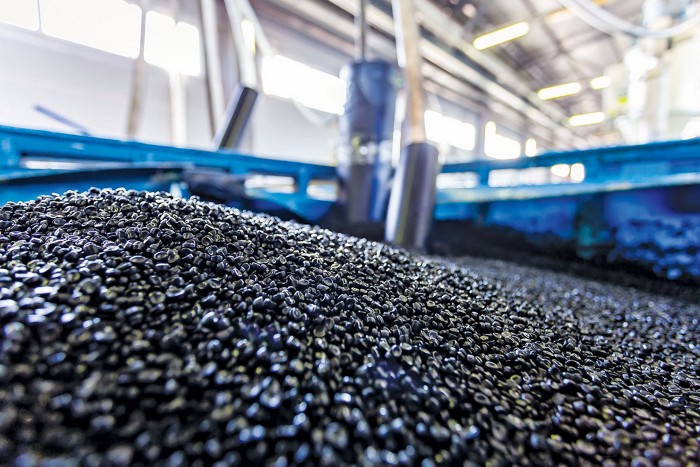Advertisement
Grab your lab coat. Let's get started
Welcome!
Welcome!
Create an account below to get 6 C&EN articles per month, receive newsletters and more - all free.
It seems this is your first time logging in online. Please enter the following information to continue.
As an ACS member you automatically get access to this site. All we need is few more details to create your reading experience.
Not you? Sign in with a different account.
Not you? Sign in with a different account.
ERROR 1
ERROR 1
ERROR 2
ERROR 2
ERROR 2
ERROR 2
ERROR 2
Password and Confirm password must match.
If you have an ACS member number, please enter it here so we can link this account to your membership. (optional)
ERROR 2
ACS values your privacy. By submitting your information, you are gaining access to C&EN and subscribing to our weekly newsletter. We use the information you provide to make your reading experience better, and we will never sell your data to third party members.
Environment
Boon For Biofuels
New projects seek to create energy from a range of renewable feedstocks
by Michael McCoy
July 9, 2007
| A version of this story appeared in
Volume 85, Issue 28

CHEMICAL and biotechnology companies have announced a flurry of initiatives aimed at creating fuels and other forms of energy from a wide variety of biomass sources.
The projects seek to turn everything from algae to manure to oil seeds into sustainable energy that can supplement traditional fossil fuels. At least one scientist watching the energy sector, however, is deeply skeptical that crops can be grown for their energy content without dire environmental consequences.
British companies BP and D1 Oils have formed a joint venture called D1-BP Fuel Crops to accelerate the planting of Jatropha curcas, a drought-resistant, oilseed-bearing tree, as a raw material source for biodiesel.
The companies say they will invest around $160 million over the next five years to cultivate jatropha in Southeast Asia, Southern Africa, Central and South America, and India. They say the oilseed is a desirable biodiesel feedstock because it does not compete with food crops for good agricultural land or adversely impact the rainforest.
Honeywell's UOP subsidiary, meanwhile, has embarked on a project to convert vegetable and algal oils into military jet fuels. With the help of $6.7 million in funding from the U.S. Defense Advanced Research Projects Agency, the company hopes to come up with renewable fuels that meet strict military specifications.
Jennifer Holmgren, director of UOP's renewable energy and chemicals business, says her unit is focused on helping standard refineries accept a broader range of feedstocks. The jet fuel effort, she adds, will build on a recent agreement with oil company Eni to convert vegetable oils into diesel fuels in an existing Italian refinery.
Finally, the Danish biotechnology companies Novozymes and Xergi are teaming to develop microorganisms that efficiently convert manure into electricity, heat, fuels, and fertilizer. Novozymes, the world's largest enzymes producer, cites a Danish government estimate that the energy stored in Danish manure could supply 25% of the country's transportation energy needs.
Tad W. Patzek, a professor of geoengineering at the University of California, Berkeley, is critical of such biofuels initiatives. He takes issue with the basic proposition that "fresh plants produced in real time used as fuel can replace old plants, whose remnants have accumulated over the last 460 million years." Attempts to do so, Patzek warns, will rapidly bring on global ecosystem exhaustion.
But John M. Deutch, a chemistry professor at Massachusetts Institute of Technology who was director of energy research and undersecretary at the Department of Energy in the Carter Administration, is more sanguine. He sees the projects as evidence of corporate and government excitement about new technology that helps meet the world's future energy needs.
"It is the nature of this high spirit of innovation that some of the ventures will sound good and not succeed, while others will sound bad and succeed," Deutch tells C&EN. "Individuals and investors will make their judgments and participate accordingly."





Join the conversation
Contact the reporter
Submit a Letter to the Editor for publication
Engage with us on Twitter